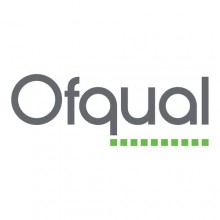Last month, SCHOOLS NorthEast made a call for evidence to secondary schools, as we investigated Head Teachers’ concerns around exam boards. The response was fantastic and your stories were the subject of an evidence document which SCHOOLS NorthEast submitted to the Education Select Committee.
On 14 October, the Committee held an Evidence Session with Ofqual’s Chief Regulator Glenys Stacey and Chair Amanda Spielman. Ian Mearns MP for Gateshead, the only member of the Education Committee representing the North East, described the SCHOOLS NorthEast evidence as “punchy” and he called on the Chief Regulator to liaise with the UK’s only regional schools network. This has resulted in a meeting being set up between Director Mike Parker, Head Teachers in our region and Ms Stacey. Further details on the event to follow.
Mr Mearns highlighted a number of issues included in the SCHOOLS NorthEast submission:
Ian Mearns: “I am sure that SCHOOLS NorthEast would welcome the opportunity to have a conversation with you. I suppose when they are using terms like “exam board roulette” in terms of grading and assessment, they have a story to tell, I would suggest. I will be in touch with Mike Parker at SCHOOLS NorthEast and ask him to give you a call.”
Glenys Stacey: Yes. The term “exam board roulette” I have not heard before and it is certainly one I would like to debate.”
Chair (Neil Carmichael): “I think Mike Parker might be watching this. I happen to know he is interested.”
Glenys Stacey: Good. I look forward to meeting him.”
(You can read the full transcript of Ian Mearns’ questions below).
———————————————————————————————
Education Select Committee: The work of Ofqual – evidence session
Transcript of Ian Mearns MP’s questions related to SCHOOLS NorthEast:
“Q45 Ian Mearns: I am just wondering, we have had evidence from SCHOOLS NorthEast, which is a representative body that covers about 1,200 schools in the north-east of England. The evidence that they have submitted has gained resonance and has been featured in the regional press in the north-east of England. Do you think it is worth your while having a conversation with SCHOOLS NorthEast about their evidence.
Glenys Stacey: I think it is. In fact, I was going to suggest that we would very much
welcome any communication from that body. We have not heard from them as yet, but of course we would welcome that.
Q46 Ian Mearns: Because their evidence is quite punchy in many respects and they have described the volatility in performance of exam boards as alarming. They say it has greatly undermined confidence in the system of assessment. Of course, they would argue, I think probably quite rightly, that that has a profound impact at the human level when you look at individual students. When you talk about the appeals process being swift and effective, part of their submission suggested that one school were told that their grades would not be altered within two hours. That is swift, but is it effective?
Glenys Stacey: You have raised a number of things there. First of all, in terms of volatility among schools, we published on the day of results for A-level, and indeed for GCSE, some volatility information—they are able to show it nowadays because of some statistical analysis in the day or two beforehand—the extent of volatility and how it compares with volatility within subjects this year and previous years, so I will be able to refer SCHOOLS NorthEast to that and we can see how schools in that area sit. Secondly, I think it is right to just confirm that, as we have moved to linear qualifications, awarding is done wholesale at the end of two years with a good amount of data and information about how students have performed across the whole of the qualification and the assessment. I think there is significantly more confidence in those awards. This year, for example, when I have met with exam boards alongside other regulators to review provisional results, there have been no concerns expressed by the regulators or by the exam boards as to any individual award. There is a growing confidence that has been induced by the move to linearisation that we can have in the awards that we now see.
Of course, you will have seen the national picture. I would hope that, in recent years, given the work done at Ofqual and in exam boards to truly be confident about awarding, the public can gradually have increased confidence in those awards as well. But of course individual schools are affected year by year. Many things affect schools: changes in teachers, changes in choice of one exam board or another, and indeed changes in the nature of the cohort at any one year at school level as well. These things are often hard to evaluate when results do not come out quite as the school might expect or hope, but we are always happy to talk to schools about their results.
Q47 Ian Mearns: I am sure that SCHOOLS NorthEast would welcome the opportunity to have a conversation with you. I suppose when they are using terms like “exam board roulette” in terms of grading and assessment, they have a story to tell, I would suggest. I will be in touch with Mike Parker at SCHOOLS NorthEast and ask him to give you a call.
Glenys Stacey: Yes. The term “exam board roulette” I have not heard before and it is certainly one I would like to debate.
Chair: I think Mike Parker might be watching this. I happen to know he is interested.
Glenys Stacey: Good. I look forward to meeting him.”
Read the full transcript here.
